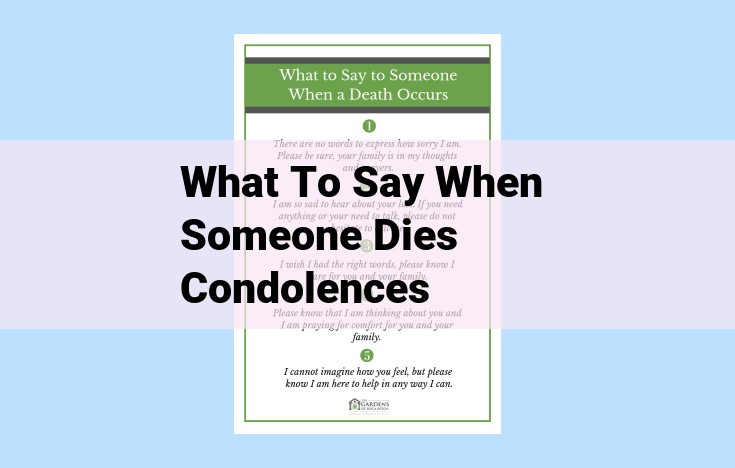Comprehensive Guide To Supporting Bereaved Individuals: Understanding Grief Levels And Compassionate Response

When faced with the profound loss of a loved one, words may seem inadequate to express condolences. Level 10 grievers navigate the depths of emotional distress, while Level 9 close companions offer support and empathy. Professionals in Level 8 facilitate the grieving process, providing practical services and spiritual guidance. Remember to approach with sensitivity, active listening, and genuine care, allowing the bereaved to express their emotions and find solace in connection during this challenging time.
Level 10: The Heart of Grief
In the depths of loss, bereaved individuals embark on a transformative journey that pierces the very core of their being. The profound pain they endure is an isolation of its own, a solitary confinement of emotions that defies understanding. The devastation they feel is all-consuming, an unyielding weight that crushes their soul.
Their world has been shattered into a million pieces, leaving them disoriented, lost, and utterly alone. The comforting presence of their loved one is replaced by an aching void, a constant reminder of the irreplaceable bond they have lost. They struggle to make sense of their newfound reality, grappling with the unfairness and pain that threatens to engulf them.
Memories of shared laughter, joy, and love now carry an unbearable weight, simultaneously providing solace and deepening their sorrow. The future they once envisioned together now feels distant and uncertain, filled with a haunting emptiness. They search for meaning amidst the chaos, seeking solace in the cherished memories they hold dear.
Level 9: Close Connections in the Labyrinth of Grief
In the depths of grief, close connections emerge as beacons of solace, guiding and supporting the bereaved on their arduous journey. These family members, friends, and partners embody the essence of compassion and companionship, providing an unwavering presence that alleviates the burden of loss.
Their unconditional love and empathetic understanding create a safe haven for the grieving, where they can freely express their emotions without judgment. Offering a shoulder to cry on, a listening ear, and a warm embrace, they validate the depth of the pain, reminding the bereaved that they are not alone.
However, these close connections also face their own challenges, grappling with feelings of helplessness, guilt, and the desire to provide adequate support. Navigating the complexities of grief while maintaining their own well-being requires extraordinary resilience and self-care.
Beyond the immediate circle, clergy, grief counselors, therapists, and support groups offer professional guidance and support. These compassionate professionals possess the training and experience to help the bereaved process their emotions, develop coping mechanisms, and find meaning amidst their loss.
Grief support groups, in particular, provide a unique space where individuals can connect with others who understand their journey. Sharing similar experiences, they offer solace, encouragement, and a sense of community that transcends the confines of personal loss.
In the tapestry of grief, close connections and professional support intertwine, forming an intricate web of care that sustains the bereaved on their path towards healing and hope.
Level 8: Facilitating the Journey
As mourners navigate the uncharted waters of grief, they encounter individuals and organizations that provide invaluable support and guidance.
Funeral Homes and Crematories: Practical Assistance in a Time of Need
These establishments offer essential services that alleviate the burden on bereaved families during a challenging time. They assist with funeral arrangements, cremation services, and other practicalities, allowing the grieving to focus on their emotional well-being. Funeral homes provide a compassionate and respectful environment where families can gather, say goodbye, and honor the memory of their loved one.
Religious and Spiritual Leaders: Comfort and Guidance from Above
Clergy, priests, and other religious leaders offer solace and hope to those grieving. They provide rituals, prayers, and spiritual counseling that can help individuals find meaning and purpose amid their pain. Religious communities offer a sense of belonging and support, fostering a shared experience of loss and recovery.
Hospice Workers and Funeral Directors: Compassionate Care at Life’s End
Hospice workers and funeral directors play a pivotal role in providing end-of-life care and facilitating the transition. They provide physical, emotional, and spiritual support to patients and their loved ones during their final days. Hospice workers work tirelessly to ensure that the patient’s wishes are respected and that their passing is peaceful and dignified. Funeral directors guide families through the often-overwhelming process of arranging funerals, ensuring that the deceased is honored in a meaningful way.